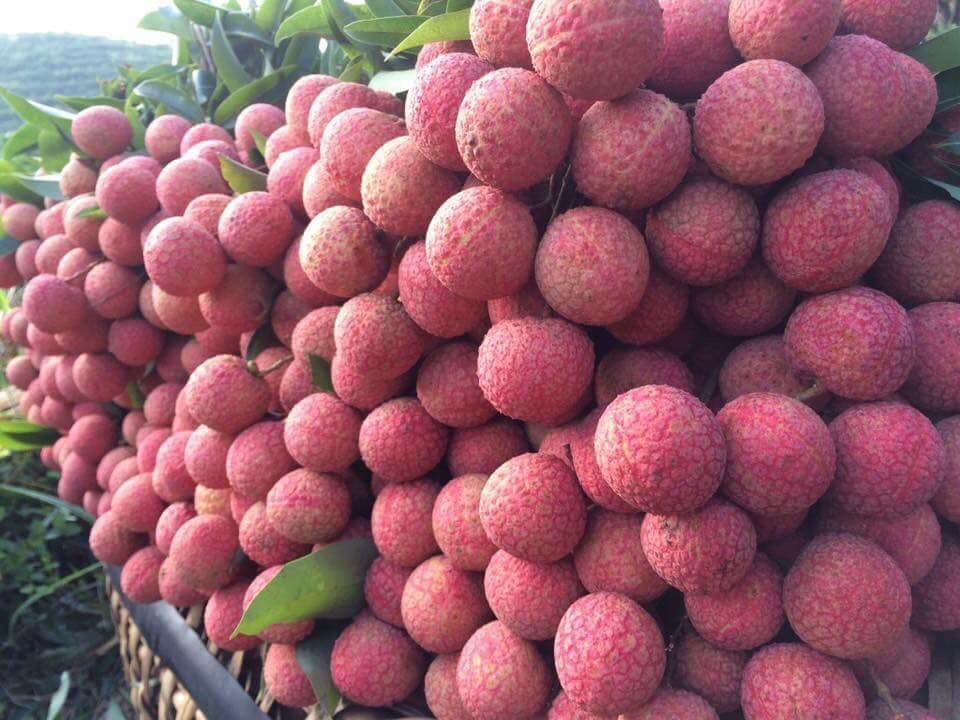VIETNAM LYCHEE IS OFFICIALLY EXPORTED TO JAPAN
12 Mon, 2019
Department of Plant Protection (Ministry of Agriculture and Rural Development) has received a letter from the Ministry of Agriculture, Forestry and Fisheries of Japan (MAFF) officially announcing the opening for Vietnamese lychee to be exported directly to Japan with the regulations on Phytosanitary import for Vietnamese lychee. This regulation takes effect from December 15, 2019.

This is the result of more than 5 years of negotiation efforts between Department of Plant Protection and MAFF, along with rigorous experiments conducted to ensure a thorough eradication of Japanese plant quarantine objects capable of follow the lychee of Vietnam.
Phytosanitary requirements for Vietnamese lychee exported to Japan include: lychee must be grown in gardens that are inspected, supervised and issued by Department of Plant Protection, complying with Japanese regulations on plant quarantine and food safety; lots of litchi fruit for export must be packed and treated with fumigation with Methyl Bromide at facilities recognized by the Plant Protection Department and MAFF with a minimum dosage of 32g / m3 for two hours under supervision, survey by Vietnamese and Japanese plant quarantine officers; batchs of lychee exported for export must be accompanied by a Phytosanitary Certificate issued by the Plant Protection Department.

Lychee was officially exported to Japan
The Plant Protection Department will continue to coordinate with exporting enterprises, handling facilities, urgently complete preparations and seek import partners to soon export the first batch of fresh lychee fruits to Japan in the 2020 lychee season.
Talking to VietnamNet correspondent, representative of Department of Plant Protection, in addition to Chinese market, in recent years, lychee of Vietnam has been exported to many countries such as Laos, Cambodia, Thailand,... At the same time, it also opened many other fastidious markets like the US, EU, Australia and now Japan.
Japan is a fastidious market, requiring high quality goods. The Japanese permission to export Vietnamese lychee fruit to their market is of great significance. Because, in addition to affirming the prestige of Vietnamese fresh fruits, it also helps to increase the export value of lychee, and at the same time creates a premise to promote high-quality production with this fruit, the representative said.
In 2019, Vietnam exported more than 100,000 tons of fresh lychee. Notably, the amount of lychee exported to fastidious markets is increasing sharply.
Thanks to the expansion of the market, in recent years, the price of lychee has been stable at a high level, helping people grow lychee with a huge income. As in 2019, despite the year of loosing season, the yield decreased by nearly half compared to 2018, but the revenue from lychee in Bac Giang still reached 6,300 billion VND, an increase of 500 billion VND compared to 2018.
Notably, in this province, there is a model of organic lychee production for export. This type of lychee is sold in the market this year for 80,000 VND / kg. Particularly carefully selected lychees, canned and sold for 200,000 VND / box of 12 fruits.
Source: https://vietnamnet.vn
Related Post
The true fishmeal carbon footprint
The established Life Cycle Analysis (LCA) methodology to assess the fishmeal carbon footprint only accounts for the vessel fuel and post-harvest processing energy while ignoring the carbon sequestration potential of fish.
View more
Freezing Tropical Fruits: Convenient and Effective Solution with Octofrost Machines
Tropical fruits are always a great choice for providing nutrition and fresh flavor to daily meals.
View more


